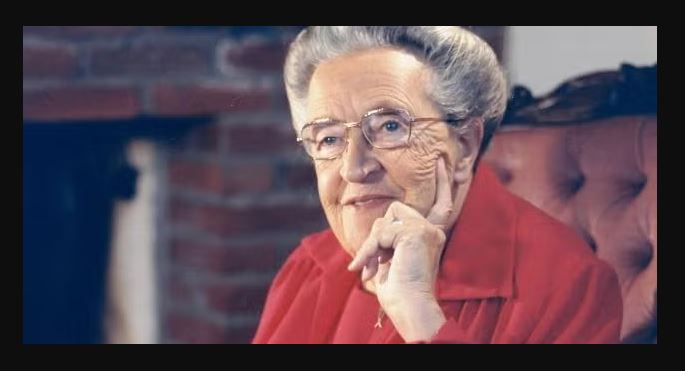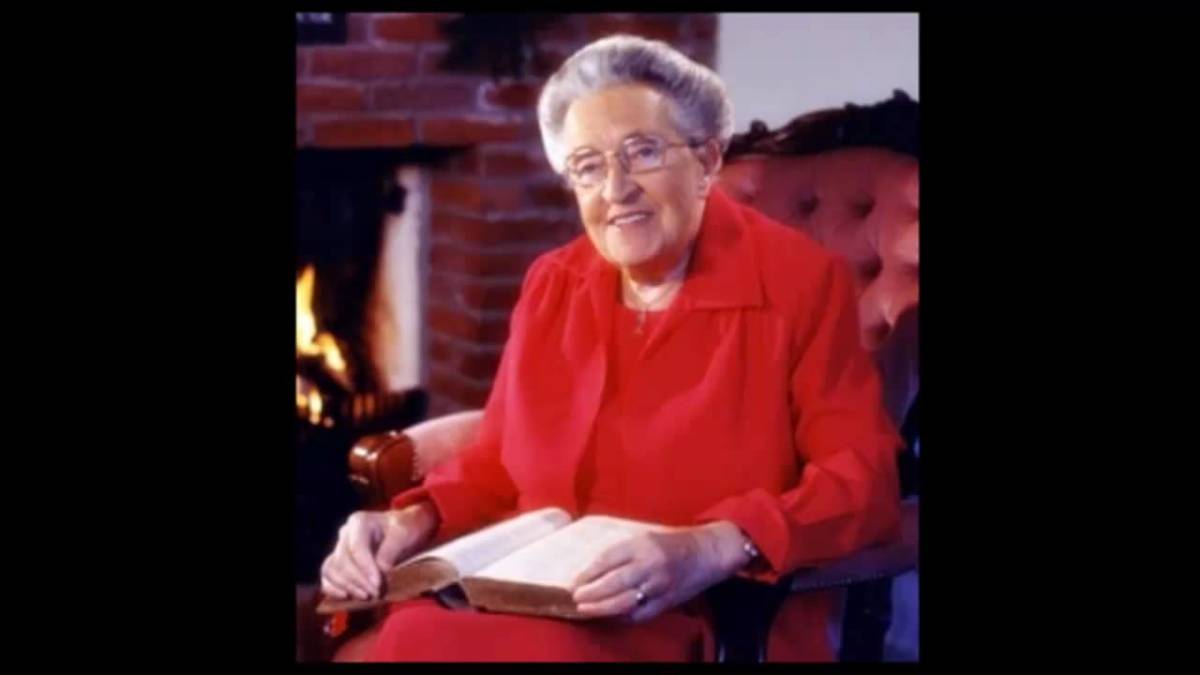
When Heaven came to Hell
The call to keep watch over God’s chosen people.

Back in late summer, I was prompted to re-visit the remarkable story of Corrie ten Boom and her family, so I bought a copy of her book, The Hiding Place, at a Christian store in Berkshire, England.
It was only when the war in Israel broke out that I realised how apt was the timing of this purchase. A Christian classic (thanks in part to the journalistic skills of John and Elizabeth Sherill), it was published in the early 1970s when I first became a believer. I well recall the day when Corrie, sitting a few rows behind me, was welcomed to a service at All Souls, Langham Place, in London, by our pastor John Stott.

From a Dutch watchmaking family of devoted Christians, Corrie and her sister Betsie were single ladies in their fifties when the dark days of Nazi occupation changed their lives forever.
Corrie was at one point romantically involved with a young man named Karel, who referred to the modest ten Boom home as the happiest in Haarlem. They lived in cramped conditions above the shop, and who would have thought it would one day become headquarters of a nationwide underground movement dedicated to saving the lives of Jewish people who would otherwise have been sent to the concentration camps, where six million of them perished after suffering hell on earth.
As she became aware of the potential cost of helping her Jewish neighbours, some of whom were followers of Jesus, Corrie came to the point where she prayed: “Lord Jesus, I offer myself for your people.”
A secret room was constructed for them to hide from their persecutors, who were determined to rid Europe of those referred to in the Bible as the ‘apple of God’s eye’.
The operation was carried out with military precision as they sought God’s help and guidance at every dangerous turn. But they were eventually arrested, spending the last year of World War II being bullied, beaten and half-starved at the hands of cruel tyrants.
They were initially sent to prison where their much-beloved father died shortly afterwards. Corrie herself, apparently because she was ill at the time of her arrest, spent a lengthy period in solitary confinement where she was reduced to befriending an ant!
They were then moved to concentration camps, ending up at notorious Ravensbruck where Betsie – always vulnerable with anaemia – finally succumbed to the pitiful conditions exacerbated by extreme brutality. Yet she had never allowed her spirit to be soured by the torture she endured.
It was a living hell, but she encouraged her sister to “give thanks in all circumstances”, as the Scripture implores us (1 Thessalonians 5:18) – even in the face of fleas, lice, dust and cold amidst a stinking and asphyxiating atmosphere. For Betsie, this merely provided more opportunity for sharing the love of Jesus.
As a nasty welt began to swell on her neck after being whipped, she urged her sister: “Don’t look at it, Corrie. Look at Jesus only.” And shortly before she died, Betsie insisted: “We must tell people that there is no pit so deep that He is not deeper still.”
Corrie wrote of the “most joyous weeks” of their time at Ravensbruck: “Side by side, in the sanctuary of God’s fleas, Betsie and I ministered the word of God to all in the room. We sat by deathbeds that became doorways of heaven. We watched women who had lost everything grow rich in hope.
“The Bible was the centre of an ever-widening circle of help and hope… The blacker the night around us grew, the brighter and truer and more beautiful burned the word of God.”
Paul’s letter to the Romans (8:35, 37) came to mind: “Who shall separate us from the love of Christ? Shall tribulation, or distress, or persecution, or famine, or nakedness, or peril, or sword… No, in all these things we are more than conquerors through him who loved us.”
Corrie added: “The Bible was now a description of the way things were – of hell and heaven, of how men act and how God acts.”
The humiliation of having to strip off in front of grinning guards was put into perspective when Corrie realised afresh that Jesus had hung naked on the cross for us!
And we are called to suffer with Christ (1 Peter 4:13). As attendance at their ‘services’ swelled, Betsie and Corrie would read the Bible in Dutch and then translate the passage into German before others weighed in with French, Polish, Russian or Czech versions. And with Roman Catholic, Lutheran and Eastern Orthodox believers among them, there was no barrier of doctrine.
Early in the occupation, when bombing and aerobatic dogfights lit up the sky of Haarlem, Corrie couldn’t sleep. Hearing Betsie in the kitchen, she joined her for a cup of tea. When she returned upstairs in the blackout darkness and groped for her pillow, she cut herself on something very sharp – a ten-inch piece of shrapnel that could have killed her if she hadn’t been in the kitchen. Yet Betsie wouldn’t allow her to dwell on what might have been, except to say: “The centre of His will is our only safety.” Or as Corrie later put it, “His will is our hiding place.” (See Psalm 32:7)
When she was finally released from the camp over Christmas 1944, she discovered that her underground group were still operating and that all but one of the Jews they had hidden were safe.
Understandably, the Dutch Nazi collaborators were despised and rejected after the war but Corrie, typically focusing on the need to forgive, turned over her home to them.
Not long after the war, at a church service in Munich, she records how she struggled to forgive a Nazi guard from her camp who had found forgiveness from Jesus. But she prayed for strength and, with God’s help, was able to reach out to him, almost overwhelmed by love.
Not every Christian was prepared to help the Jews in this way during the war. One pastor, asked if he would be willing to take a Jewish mother and baby into his home, refused because it would mean risking his life. But Corrie’s father responded: “You say we could lose our lives for this child. I would consider that the greatest honour that could come to my family.”

At her initial imprisonment, Corrie got into conversation with a kindly German officer assigned to question her. He admitted there was “great darkness” in his life, adding: “I cannot bear the work I do here.” And he went on to say he was in a prison stronger than the one she was in.
While being marched from the train to the barracks at Ravensbruck – and later to and from work details – Corrie noticed how local residents “turned their heads away” as they passed, something she mentioned twice.
Christians, especially, can’t afford to let that happen again. We simply dare not look the other way. We must make a stand. We owe a great debt to the Jewish people. As those who have embraced the faith of Abraham, Moses, Elijah and Messiah Jesus, we must love them as God does.

The virulent hatred against Jews reflects Satan’s view of Israel’s God. So we do not have the option of sitting on the fence. Are we for God’s ancient people, for whom he has declared his “everlasting love” (Jeremiah 31:3), or against them? If you love Jesus, you will love the Jews. He is, after all, still Jewish, and will return to Jerusalem as the “Lion of the tribe of Judah” (Revelation 5:5).
Leave a Reply